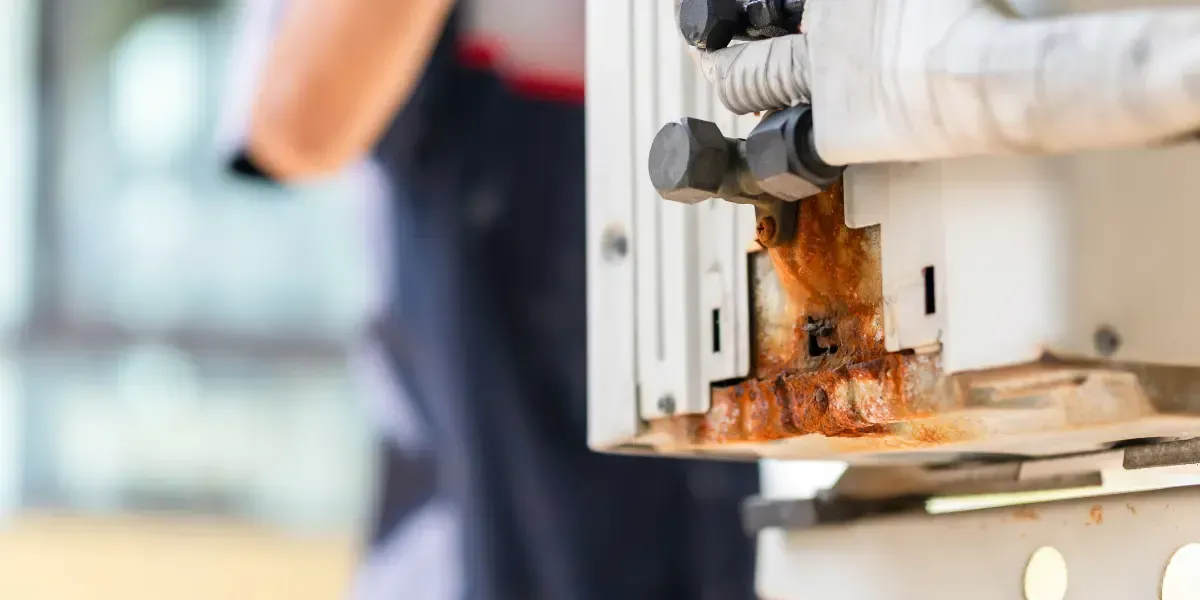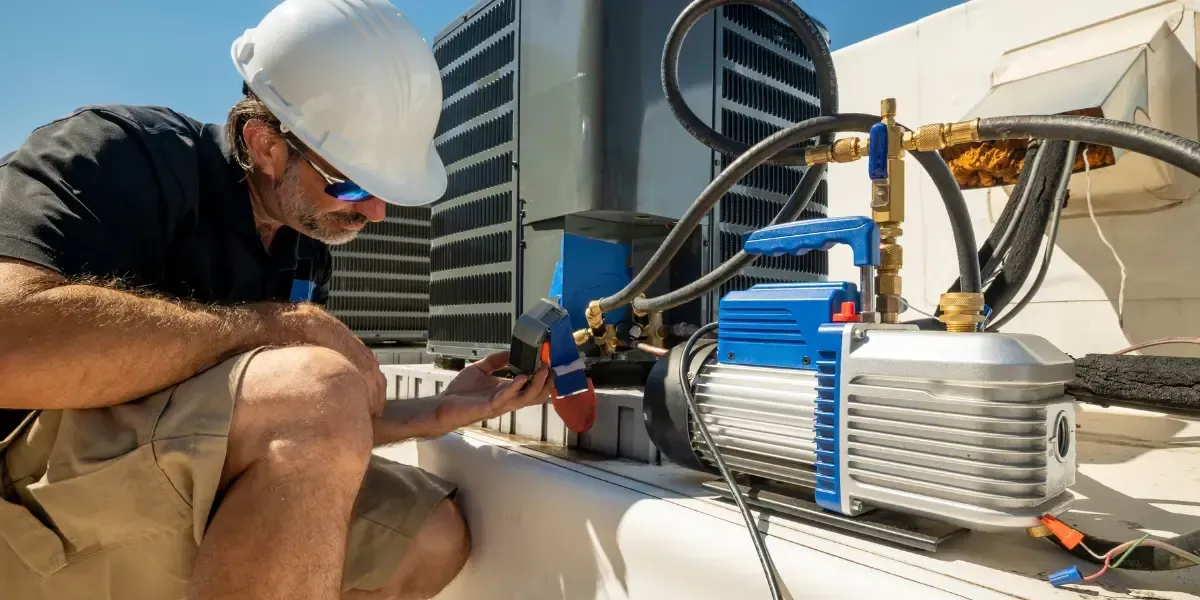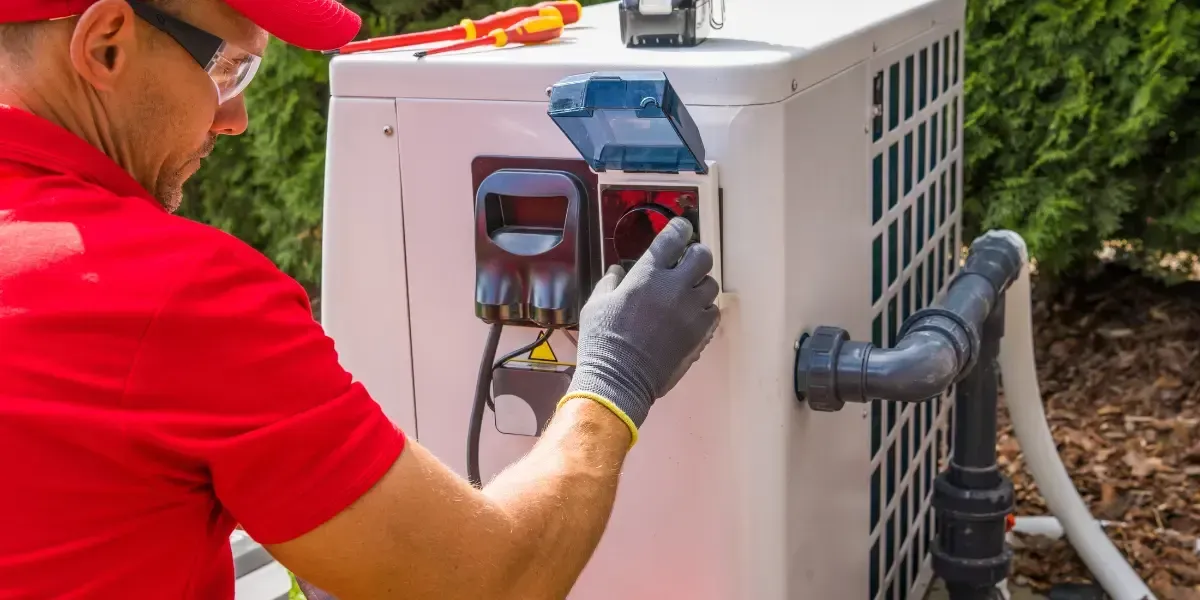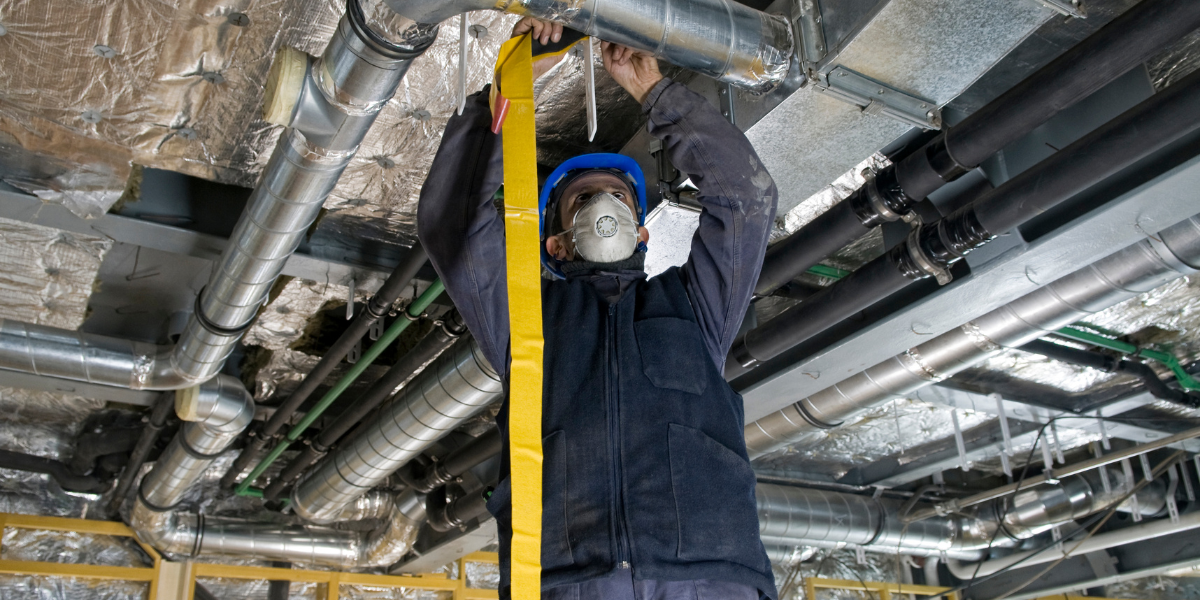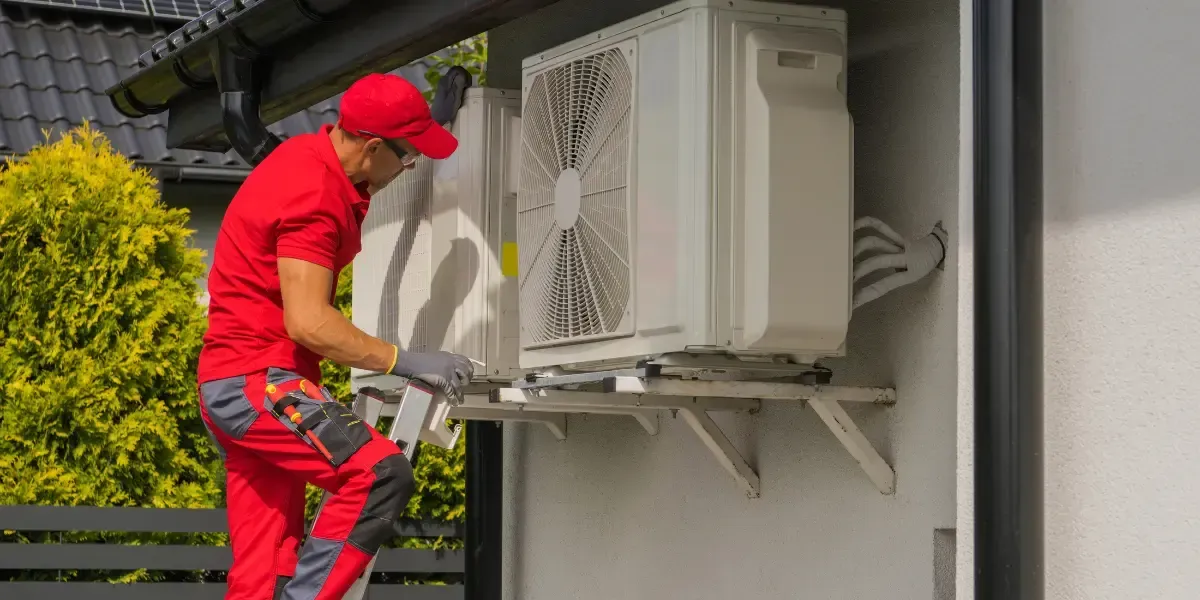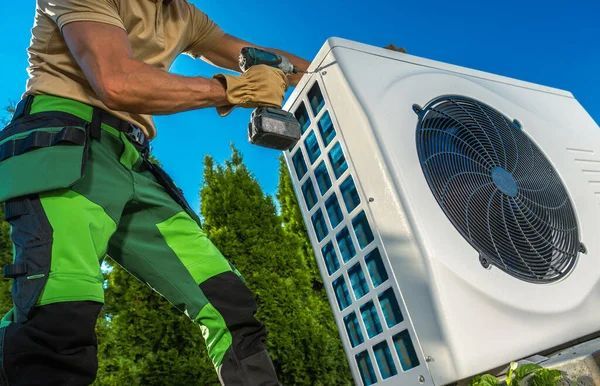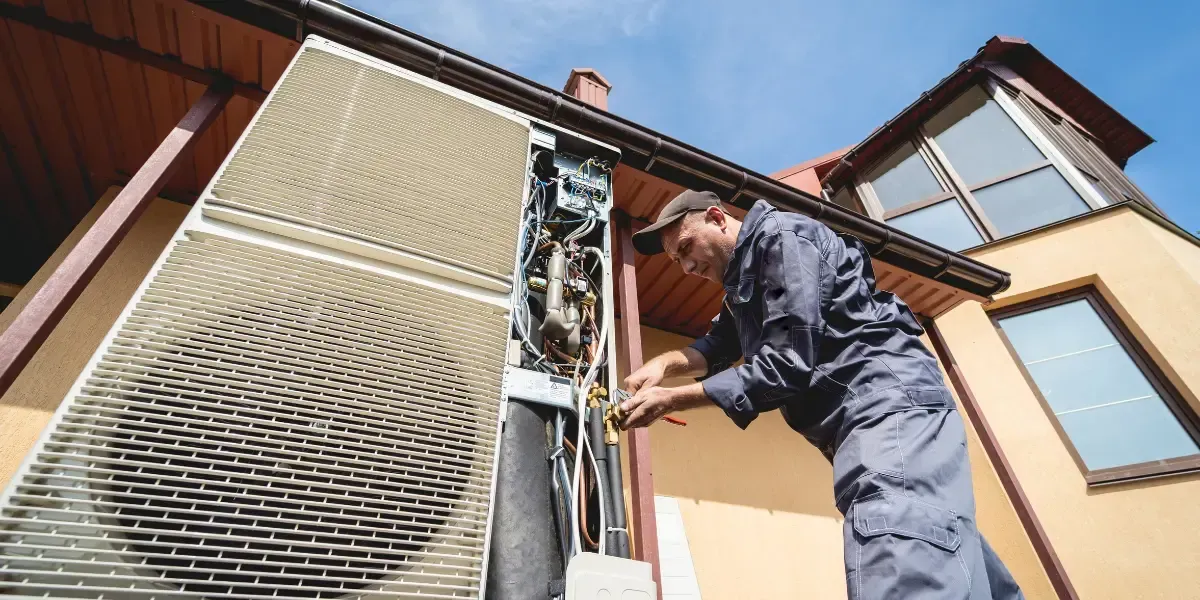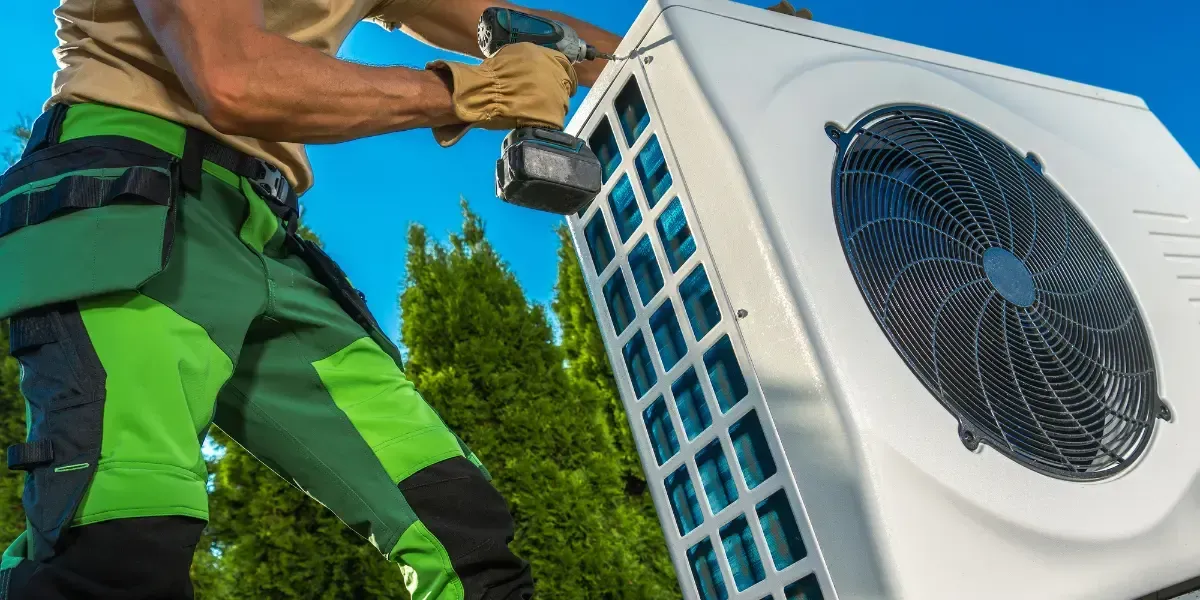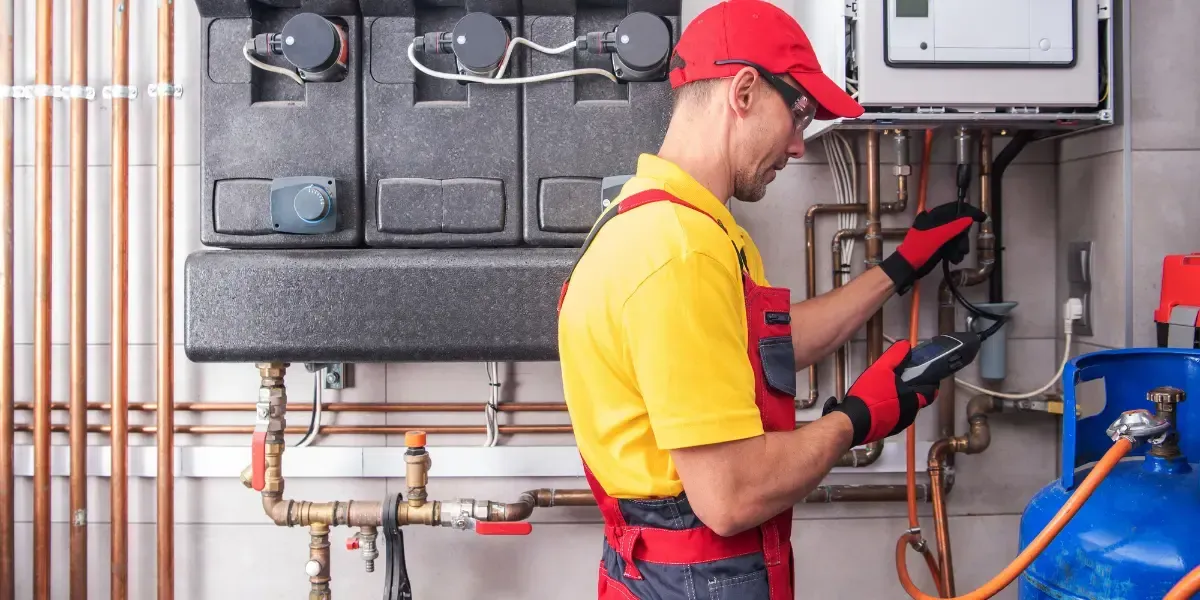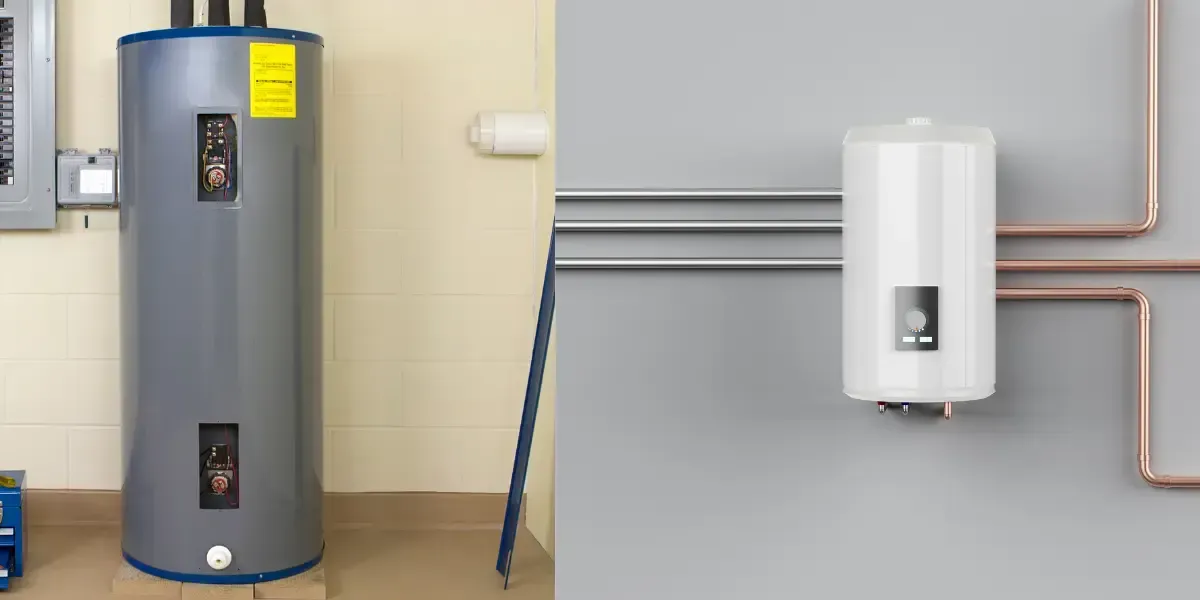Why Is My Heat Pump Leaking? Common Causes Explained
Heat pumps are very good heating and cooling systems. However, they can have problems, like leaks, which might confuse or annoy homeowners. Leaks can not only lead to wasted energy but can also cause expensive repairs or water damage if not taken care of. If you have been wondering, "Why is my heat pump leaking water?" This guide will help you find out possible causes and how to fix them.
Key Takeaways
- Heat pump leaks are often caused by clogged drain lines, dirty filters, or low refrigerant levels.
- Regular maintenance, including cleaning drain lines and changing filters, can help prevent leaks.
- A leaking heat pump may show signs like water pooling, strange noises, or musty odors.
- Professional assistance is recommended for persistent leaks or complex issues like pump failures or refrigerant problems.
- Monterey Bay Heating and Cooling offers expert heat pump repairs to ensure comfort and efficiency.
Common Signs of a Leaking Heat Pump
A leak might not be easy to see right away. However, there are several signs that can show your heat pump is leaking:
- Visible Water: If you notice water collecting around your unit, it clearly shows there is a leak.
- Strange Noises: Noises like gurgling or hissing may mean water or refrigerant is leaking out.
- Unpleasant Odors: A damp or musty smell could point to water getting trapped or mold developing.
Noticing these signs early can prevent further damage to the unit and help you fix the problem quickly.
Why Is My Heat Pump Leaking Water?
Understanding why a heat pump might leak means looking at several causes. Heat pumps create moisture when they work, especially during cooling. A small amount of moisture is normal. However, too much water can be a warning sign.
Condensate Drain Clogs
One common reason for a leaking heat pump is a blocked condensate drain line. Dust, debris, and algae can build up in this line over time. This blockage stops the water from draining out.
- Signs of a Blocked Drain: You might see water gathering at the bottom of your heat pump and feel uneven heating and cooling.
- Solution: Check and clean the condensate drain often to keep it clear and working well.
Dirty Air Filters
Air filters need to be cleaned or changed often. Dirt and debris can block airflow, making your heat pump system work too hard and causing leaks.
- Impact of Blocked Airflow: When the filter is very dirty, the evaporator coil can freeze. This can then cause water leaks when the coil melts.
- Prevention: Get into the habit of checking and changing your air filter every 1-3 months.
Low Refrigerant Levels
If your heat pump's refrigerant is too low, it can cause temperature changes and freeze the evaporator coil. When the ice on the coil melts, it produces extra water, which may overflow.
- How Low Refrigerant Causes Leaks: Low refrigerant causes the pressure in your system to drop. This cools the coil too much, causing ice to build up and then melt into water.
- Solution: A skilled technician can see and refill refrigerant levels if needed.
Improper Installation Issues
Sometimes, leaks happen because of bad installation. If your heat pump is not level or placed the wrong way, it might not drain water properly, which can lead to leaks.
- Impact of Wrong Tilt: A small tilt or misalignment can stop drainage and make water gather instead of leaving the unit.
- Solution: Make sure to have your heat pump installed by qualified experts to prevent these problems.
Frozen Evaporator Coil
The evaporator coil in your heat pump can freeze for several reasons, such as low refrigerant or problems with airflow. When the ice finally melts, it creates extra water.
- Why Coils Freeze: Restricted airflow or low refrigerant are common reasons for coil freezing.
- Keeping It Free: Caring for your system can stop coil freezing and avoid water leaks.
Cracked or Damaged Drain Pan
The drain pan collects water that builds up. Over time, it can rust, crack, or get damaged. This damage can cause water to leak out.
- Effects of a Damaged Drain Pan: Water will leak from the pan instead of flowing outside. This can cause leaks around the unit.
- Solution: If the drain pan is broken, it might need to be replaced to stop more leaks.
Broken Condensate Pump
In some systems, a condensate pump helps remove water from the unit. When this pump stops working, it can't get rid of the water, which causes water to build up.
- Signs of Pump Failure: If you see water gathering around the unit or hear unusual sounds from the pump, it might be broken.
- Fix: A technician can fix or replace the pump if needed.
Humidity and Weather Conditions
Environmental factors, like high humidity or changing temperatures, can cause your heat pump to leak. When it’s humid, your heat pump has to work harder to remove moisture from the air. This extra work can result in more moisture building up.
- Impact of High Humidity: High humidity means your heat pump has to handle more water than normal. This can cause water leaks.
- Solution: A dehumidifier can help lower the moisture in your home.
Preventative Maintenance Tips
Regular care is important to keep your heat pump free from leaks. Here are some steps to help prevent problems:
- Regular Inspections: Look at your heat pump two times a year to find possible problems early.
- Clean Drain Lines: Clear out debris in the drain occasionally to stop blockages.
- Change Filters: Change your air filters often to keep good airflow and stop coils from freezing.
When to Call a Professional
If you have tried these steps and the leak does not stop, calling a professional is a good idea. Ongoing leaks can indicate bigger problems that only a trained expert can see and repair.
Ignoring a leaking heat pump can lead to bigger repairs later. Do not wait to get help.
How Monterey Bay Heating and Cooling Can Help You
Choose Monterey Bay Heating and Cooling when you need reliable heat pump repairs. Their skilled technicians care about your happiness and can quickly find and fix any leaks you may have.
By picking
Monterey Bay Heating and Cooling, you choose experts who focus on comfort and lasting solutions.
Conclusion
Fixing leaks in your heat pump is important for keeping your home comfortable and saving energy. Knowing the reasons for leaks—such as clogs, low refrigerant, and dirty filters—you can stop most problems before they worsen. Regular care and quick help from professionals are needed to keep your heat pump working well.
For help with heat pump repairs and more, contact
Monterey Bay Heating and Cooling at
(831) 905-6480. Their team is here to assist you with all your heating and cooling needs.
Frequently Asked Questions
What should I do if I see water pooling around my heat pump?
First, look for blocked drain lines and check the air filter. If the leak continues, contact a professional to inspect it closely.
Can I fix a leaking heat pump myself?
Homeowners can handle small tasks, like putting in a new filter or clearing out a drain. However, for leaks that don’t stop, it’s best to contact a professional.
How often should my heat pump be serviced to prevent leaks?
It is best to have servicing twice a year. This helps find problems early and keeps the system running well.
Is it normal for a heat pump to leak in winter?
While some moisture is normal, too much water in winter could show a problem with the system.
Why is there a musty smell coming from my heat pump?
A musty smell usually means there is mold or mildew. This often happens because of water that has been collected from a leak. It is important to deal with this quickly.

